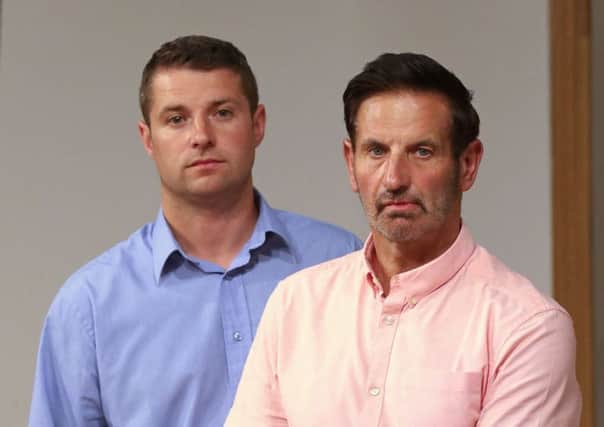Experts speak out against victims having a ‘voice’ in parole hearings


The Scottish Government is currently consulting on ways of giving victims more of a “voice” when it comes to releasing offenders from custody.
But three academics have said allowing victims or their families to speak at parole hearings could lead to them being “re-victimised” because their words will have “no bearing” on the board’s decision.
Advertisement
Hide AdAdvertisement
Hide AdThe family of Michelle Stewart, 17, who was murdered by her ex-boyfriend in 2008, are among those leading calls for reform of the parole system, including allowing victims and their families to be given reasons for an offender’s release, and to make representations in person.
However, in a submission to the Scottish Government’s ongoing consultation, criminologists Professor Fergus McNeill, Dr Marguerite Schinkel and Dr Hannah Graham argue against giving victims a greater voice in the process.
They said: “At its worst, the proposal could lead to a situation where victims and their families are given an entitlement to speak, but what they have to say can have little or no legitimate bearing on the board’s decision.
“In other words, they could speak but they could not be meaningfully heard. Such a scenario risks ‘re-victimising’ victims and affecting their confidence and trust in criminal justice processes.”
The academics said it would be “more honest and less harmful” to explain to victims and their families why the impact on them should not be considered at the parole stage.
“Overall, we support offering victim notification and support services, but we do not support the proposal to allow victims to have (or to be led to believe that they have) direct influence on parole board decision-making.”
Justice Secretary Humza Yousaf launched the consultation in December with a view to “strengthening victims’ voices” in the parole system.
The Faculty of Advocates has said the voice of victims and their families could be heard using a “personal statement” but should be otherwise restricted.
Advertisement
Hide AdAdvertisement
Hide AdThe Stewart family’s campaign for a so-called “Michelle’s Law” was launched after it received a letter informing them that her killer had been approved for temporary release, allowing him unescorted access to the community.
The teenager was stabbed to death in the street in Drongan, Ayrshire, by John Wilson in 2008. Wilson, who was in 2009 sentenced to 12 years in prison, was deemed eligible for temporary release after serving nine years behind bars.
Speaking to The Scotsman last week, Michelle’s sister, Lisa Stewart, said: “Parole hearings are very much a closed shop and there needs to be more openness and transparency. One way of doing so is to let victims and/or their family be present.
“The offender has a lot of representation at the hearings, whereas the victim and / or their family has limited representation.”